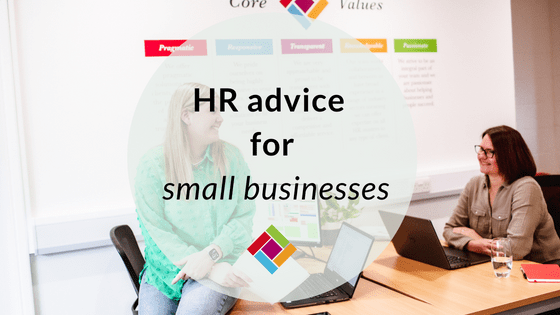
As small business owners, we know that HR can fall to the bottom of your list. It’s not easy to manage staff issues whilst running your business day-to-day. It’s also difficult to know when to start thinking about HR if you’ve experienced rapid growth. Many clients come to us when they are already trying to tackle an issue. We would always advise thinking about business HR as soon as you hire your very first employee.
Here’s our snapshot of HR advice for small businesses.
Understand your obligations as an employer and employment law
Even if you only employ one person you have an obligation to ensure their health and safety whilst at work (under the Health and Safety Act 1974). You must also avoid discrimination of any sort in the recruitment and management of your staff. Familiarise yourself with protected characteristics. ACAS is a really useful site for employers with lots of free templates and guidance.
Conduct an HR audit as soon as you hire your first employee
We know that HR in an SME is not always a top priority. However, as soon as you hire your first employee you should conduct an HR audit. This will help you to understand if you have the correct policies and procedures in place. Not only will this protect your employees, but your business too. For example, are all your staff contracts relevant and legal? Having the proper policies in place could help to avoid any potential grievances or disciplinaries further down the line. Use our free HR health check tool to see how your business fares and whether you need HR support. You can also contact us for free HR advice for your small business.
Think about how you will deal with HR challenges in your small business
Will you deal with any staff challenges as and when they arise? Or will you take a strategic approach and plan for change? It is a good idea to set out your approach in a combined HR strategy. This helps you to understand how you will tackle challenges, but also plan ahead long term for your business growth (see below). If you’re unsure of which approach to take seek some HR advice.
Create an HR strategy
If you want to attract and keep good people then you will need an HR strategy. It’s that simple. This is probably one of the most important pieces of HR advice for small businesses. This doesn’t have to be complex, but it will help you understand the approach you want to take with your employees. There are some key elements to consider including: how you will measure employee satisfaction, how you will measure performance, what you will provide in terms of training and development, and your recruitment and working practices. Read our blog for more tips.
Practice what you preach
Another simple, but obvious piece of HR advice for small businesses. If you’re asking your staff to work in a certain way, then it’s essential that you do the same (particularly in a small business environment). The old adage ‘lead by example’ really is true when it comes to building up a workforce, and positive workplace culture.
Ensure consistency
This goes across your policies and management style. Make sure that employees all have the same working practices and opportunities available to them. This is particularly relevant if your business is growing at a pace where the first employees could be experiencing benefits that newer staff are not. If you can remain consistent and transparent as you grow you will find that your staff morale will stay high and your staff turnover low.
Research small business HR software
This doesn’t have to be costly and can help avoid admin nightmares by organising your staff information, sickness and holiday records in one place. In the long run, as your business scales, it can make life easier. We are a Breathe HR gold partner and can give you a free demo and offer advice based on your requirements.
Create an employee handbook
This is a simple and easy way to set out your company culture and define what’s expected of your employees. It can be used as a basis for your HR strategy and becomes extremely useful as your business hires more staff. Read our guidance on what to include or even consider an alternative ‘culture book’. If you need advice on how to compile a handbook, get in touch.
Resolve conflict – don’t ignore it
It can be easy to bury your head and avoid difficult or awkward conversations with staff, but these situations almost always escalate. It’s better to tackle issues head-on which will also help you in future scenarios. We’ve got a free eBook with HR advice for small businesses on having those awkward conversations.
Seek HR advice for your small business
Our biggest piece of HR advice for small businesses is always to seek help if you have an HR issue and are unsure of what action to take. Many HR consultancies like ours offer free employment advice (we offer 15 mins of free HR advice for small businesses). This gives you an idea of whether this is something you could deal with in-house or if you need HR help from an outsourced HR company.
As your business expands, and you take on more people, HR will soon become too big a job to handle as the business owner. It’s also not something an office manager should handle. If you’re not in a position to take on an in-house HR manager then outsourcing your HR is a great alternative. Many HR consultancies offer packages based on the size/needs of your business. For example, our Plan A starts at 2 hours per month. You can download our eBook ‘how to outsource your HR’ or read our guide to outsourcing HR.